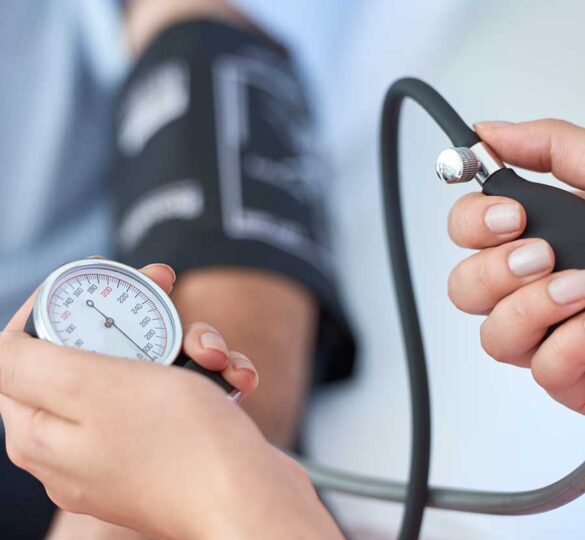Blood Pressure and Glaucoma: Questions and Answers
Dr. Cantor discusses how blood pressure is related to glaucoma and explains the treatment possibilities available to optimize eye health.

Q: What’s the connection between blood pressure and eye pressure in glaucoma?
Evidence suggests that low ocular perfusion pressure is a strong risk factor for glaucoma. Ocular perfusion pressure is a complex parameter that can be considered as the difference between the blood pressure and the eye pressure. If the blood pressure is low and the eye pressure is elevated, blood has difficulty getting into the eye to supply oxygen and important nutrients.
However, even in individuals with average eye pressure, the blood pressure may be low enough naturally, or as a result of treatment for high blood pressure, to deprive the eye of adequate blood flow.
Normally, our bodies adapt to changes in blood pressure, body position, or other factors in order to maintain constant circulation to important areas such as our brain or our eyes. For some individuals, their bodies may lack the ability to adjust the circulation appropriately, so the tissue may not be properly nourished and may suffer damage over time.
Q: Does high blood pressure cause glaucoma?
High blood pressure is not directly linked as a cause of glaucoma, but it is a risk factor for glaucoma, especially if untreated over many years.
Q: What can be done if the ocular perfusion pressure is too low?
Low ocular perfusion pressure may be improved by lowering eye pressure and/or by increasing blood pressure. While there is strong evidence to support the treatment of glaucoma by lowering eye pressure, there is not enough data to support increasing blood pressure, and in fact, this could have detrimental effects in other parts of the body.
If you are on blood pressure lowering medications, your treating physician might consider evaluating your blood pressure control to determine if perhaps less blood pressure medication is appropriate. Monitoring blood pressure can be helpful, especially in patients who are getting worse despite adequately controlled eye pressure. Your glaucoma doctor may discuss blood pressure concerns with your internist or primary care physician to maintain the optimum health of your eye.
Article by Louis B. Cantor, MD. Last reviewed on February 10, 2022.

Louis B. Cantor, MD
Dr. Cantor is the Jay C. and Lucile L. Kahn Professor of Glaucoma Research and Education and Director of the Glaucoma Service at the Eugene and Marilyn Glick Eye Institute, Indiana University School of Medicine, Department of Ophthalmology, in Indianapolis, Indiana.